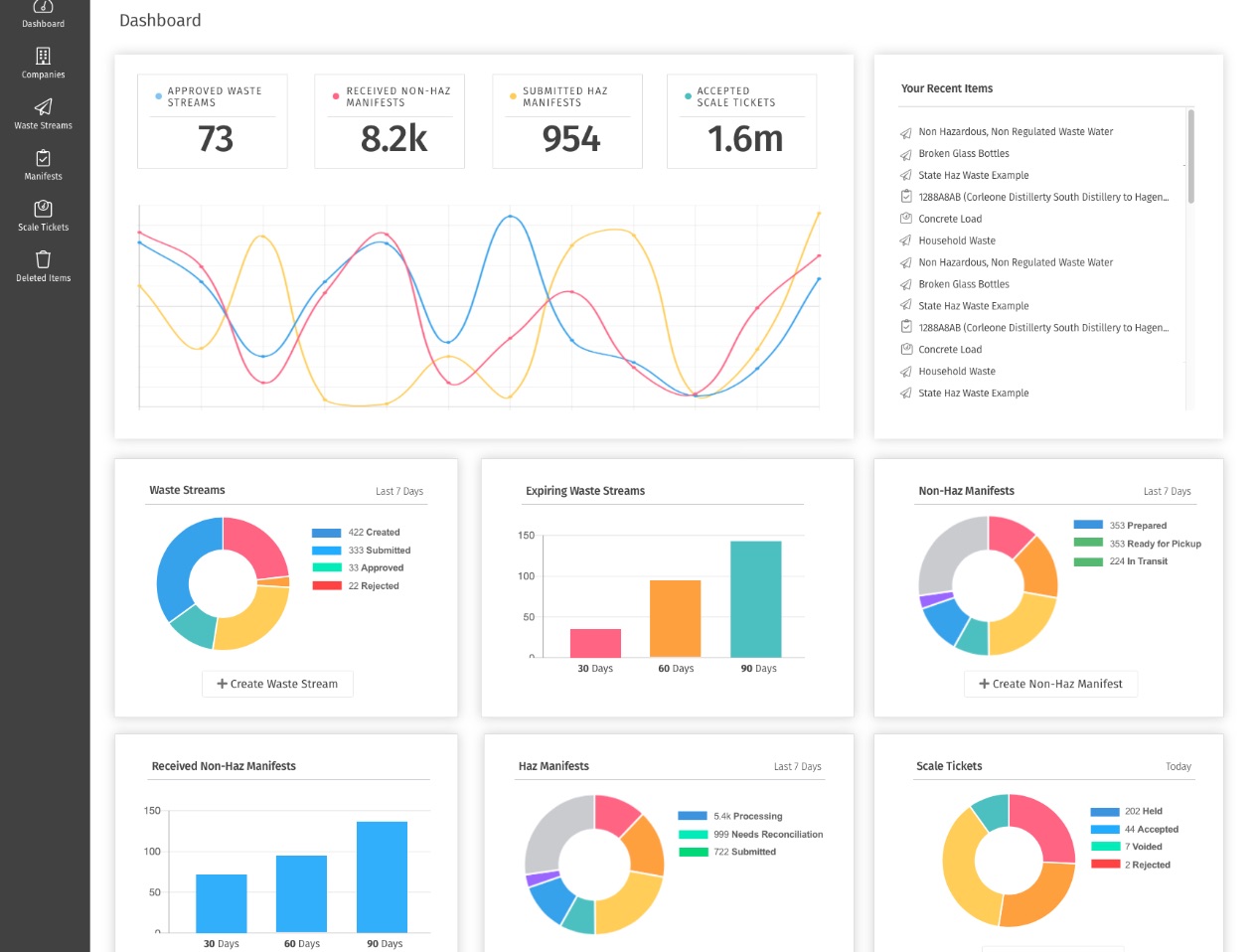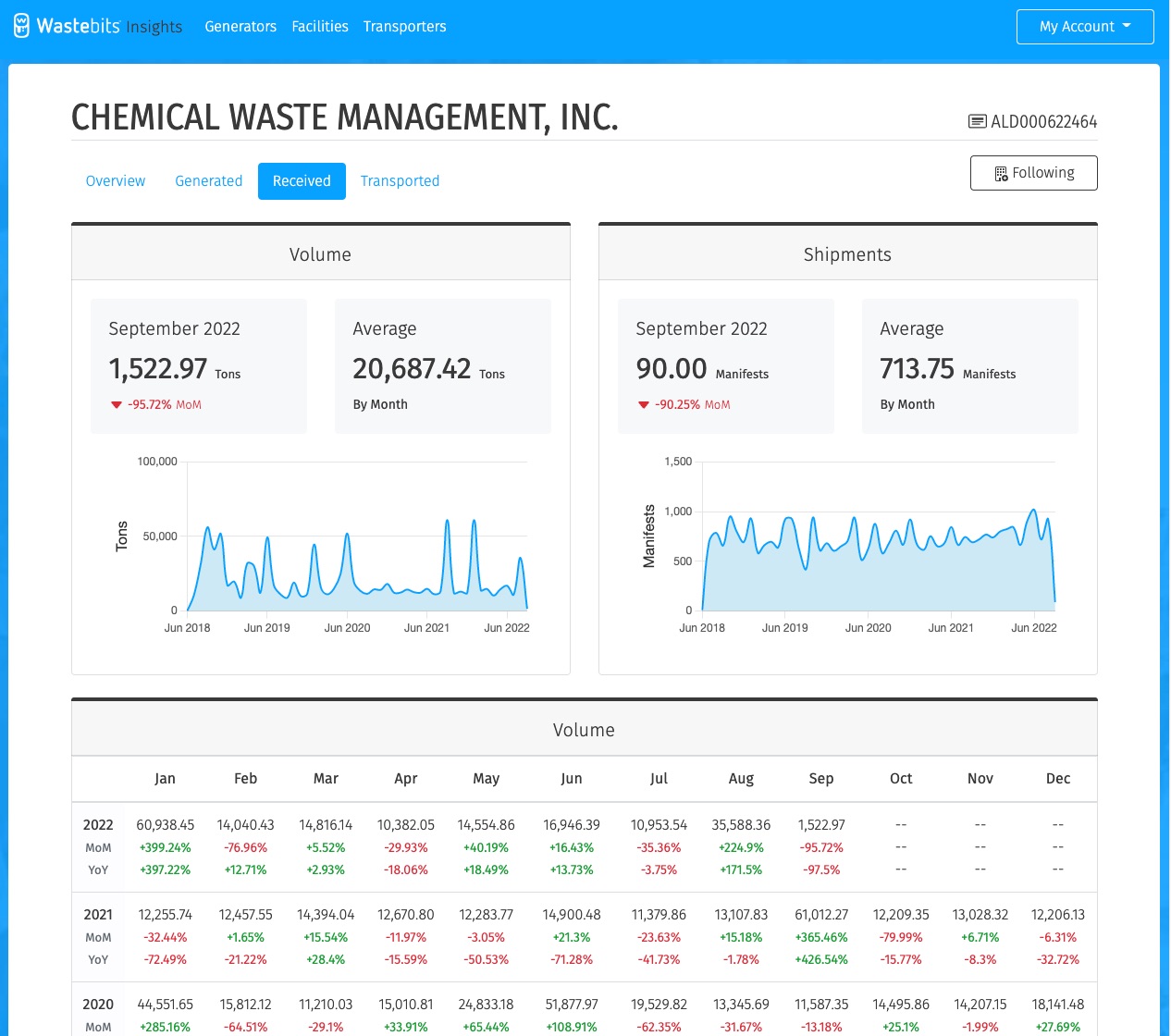CO₂ Equivalents Calculator
Easily calculate the carbon footprint of different waste types and make informed sustainability decisions. Enter your data to see the CO₂e impact and explore waste reduction strategies.
How to Use the Calculator: Simply select your waste type, enter the quantity, and instantly see the estimated CO₂e emissions to make informed sustainability decisions.
0 Tons CO₂e Total
lbs.
kg.
Enter the quantity and units of waste into the form to calculate the estimated CO₂e values.
How are these values calculated? We've provided an approximate breakdown of the CO₂e per ton of each waste type sent to landfills. These values provide a starting point but can vary depending on the waste composition, landfill technology, and local conditions:
- Organics: ~0.5 to 0.75 tons CO₂e per ton, primarily due to methane emissions during anaerobic decomposition.
- Plastics: ~1.0 to 1.5 tons CO₂e per ton, as plastic does not decompose fully but contributes to emissions indirectly via energy-intensive processes.
- Metals: Typically <0.1 tons CO₂e per ton. Metals are inert and don’t decompose, but mining and production of metals are CO₂-intensive.
- Glass: <0.1 tons CO₂e per ton. Like metals, glass is relatively stable, but energy-intensive production contributes indirectly to CO₂e.
- Hazardous Waste: This varies greatly based on the type of waste. Generally, 0.1 to 0.5 tons CO₂e per ton as disposal can require additional treatments or energy-intensive incineration processes.
- PPE: ~1.0 to 1.3 tons CO₂e per ton, depending on composition (often a mix of plastic and organic fibers), with similar characteristics to mixed plastics waste.
- EPA Equivalents: A medium growth coniferous or deciduous tree, planted in an urban setting and allowed to grow for 10 years, sequesters 23.2 and 38.0 lbs of carbon, per year respectively. For miles driven, the EPA and DOT use a common conversion factor of 8,887 grams of CO2 emissions per gallon of gasoline consumed.
*Water bottle equivalants are estimated as a 1L PET bottle and has a benchmark climate footprint of 0.31 kg CO₂e/kg.
👋 Schedule a Consult
Schedule a demo today to see for yourself how Wastebits can help run your sustainability efforts in the circular economy.
Connect with our sustainability solutions experts, and discover how Wastebits can power your initiatives in an easy and effective manner.


Frequently Asked Questions
What is a CO₂ Equivalents Calculator?
A CO₂ Equivalents Calculator estimates the greenhouse gas emissions associated with different waste types, helping organizations track and reduce their carbon footprint.
How does the CO₂ Equivalents Calculator work?
Simply select your waste type, enter the quantity in pounds, tons, or kilograms and the calculator will instantly provide the estimated carbon dioxide equivalent (CO₂e) emissions.
Why is measuring CO₂e important?
Measuring CO₂e helps businesses and individuals understand their environmental impact, comply with sustainability regulations, and make informed waste management decisions to reduce emissions.
What types of waste can I calculate CO₂e for?
The calculator covers a range of waste types, including plastics, organics, metals, glass, hazardous waste, and PPE, each with unique emission factors.
How can I reduce my waste-related CO₂ emissions?
You can reduce emissions by diverting waste from landfills, increasing recycling efforts, implementing waste-to-energy or alternative fuels solutions, and optimizing waste management strategies with sustainability in mind. Interested in learning more? Contact our team to learn more about how Wastebits is helping businesses divert waste from landfills.
